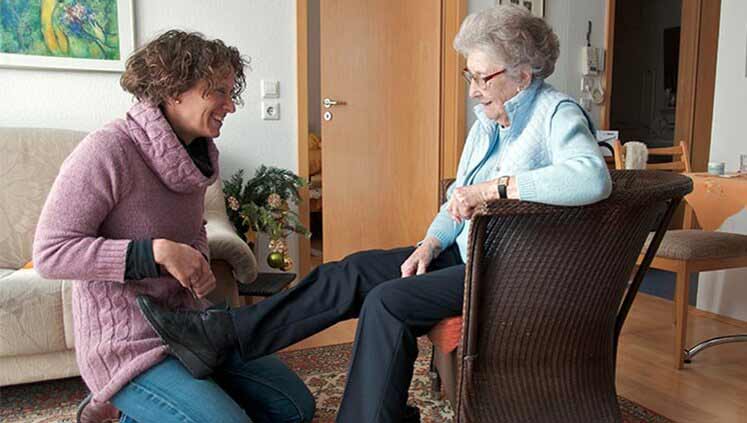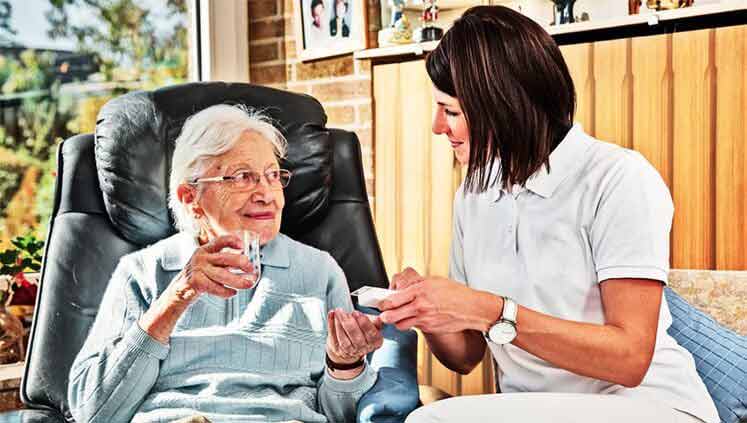to patients and families. Caregivers and support teams work closely
with patients, their families, and physicians to ensure:
Personalized Care in Various Aspects of Daily Living
-
Domestic Duties
- Meal Preparation
- Light Housekeeping
- Laundry & Linen Changes
- Shopping & Errands
- Driving to Appointments
-
Personal Care
- Bathing & Dressing
- Personal Grooming
- Bathroom Assistance
- Incontinent Care
-
Safety & Security
- Ambulating Assistance
- Wheelchair Transfers
- Medication Supervision
- Range of Motion Exercises
Affinity Brings Unrivaled Expertise in Senior Home Care
Enabling Your Loved Ones to Remain Independent and Happy in their Homes

Activities of Daily Living (ADL):
are fundamental and routine functions and activities that people tend to do every day without needing assistance.
- Eating: Assistance with feeding of daily meals and snacks
- Bathing: Washing and bathing assistance in a tub or shower
- Toileting: Assistance to and from the toilet, and associated personal hygiene
- Transferring: Assistance transferring to a bed, chair or wheelchair
- Continence Care: Care for aging people with bowel and urinary incontinence
- Dressing: Help with clothing, any necessary braces or artificial limbs

Instrumental Activities of Daily Living (IADL):
are activities that enable an individual to live
independently in a community.
- Errands and Shopping: Regular grocery and clothing shopping
- Medication Reminders: Making sure your loved one takes medications as prescribed
- Doctors Visits: Scheduling and arranging transportation to medical appointments
- Light Housekeeping: Ensuring your loved one is living in a clean and safe environment
- Meal Preparation: A caregiver can prepare a healthy and nutritious meal.
- Use of Communication Devices: Assisting with use of telephone or other form of communication.
To enable seniors, the homebound, and the chronically disabled to
live independently in the safety and security of their own homes for as long as possible,
we also provide Hospice Support, Custodial Care, Joyful Companionship, Respite for Family
Caregivers, and other In-Home services.